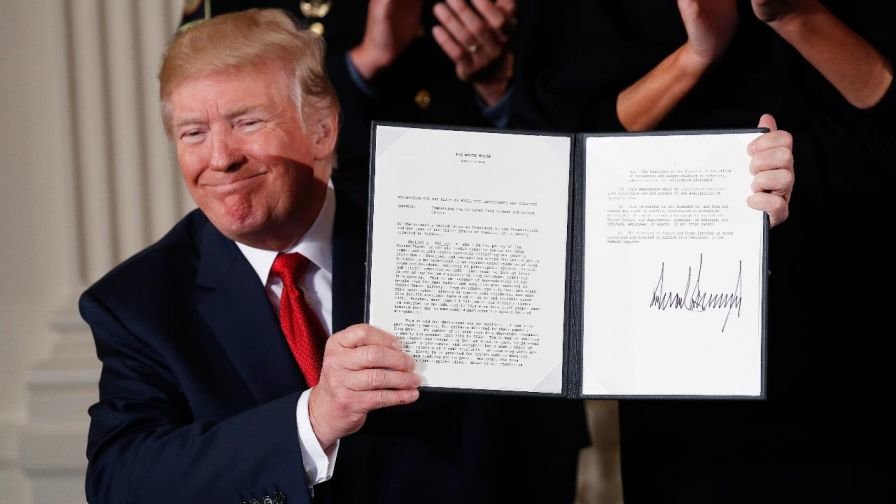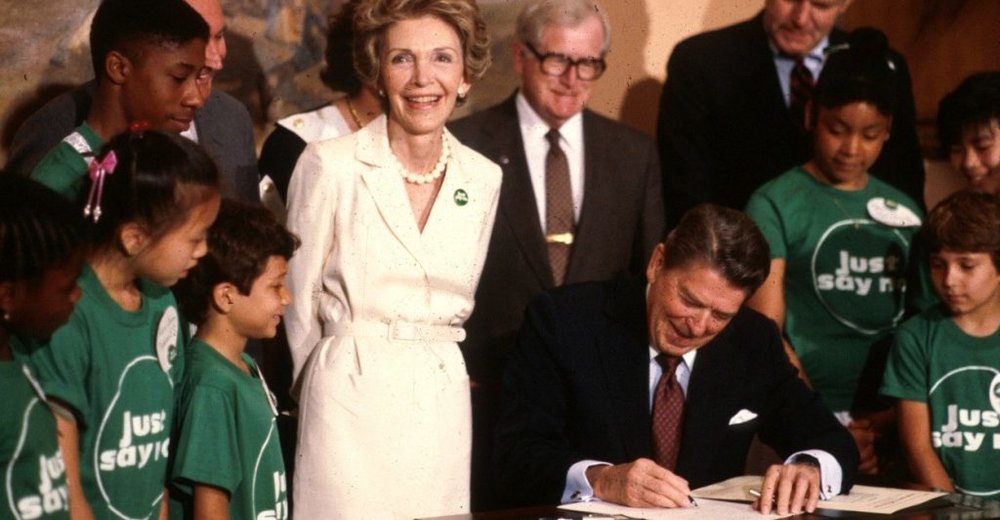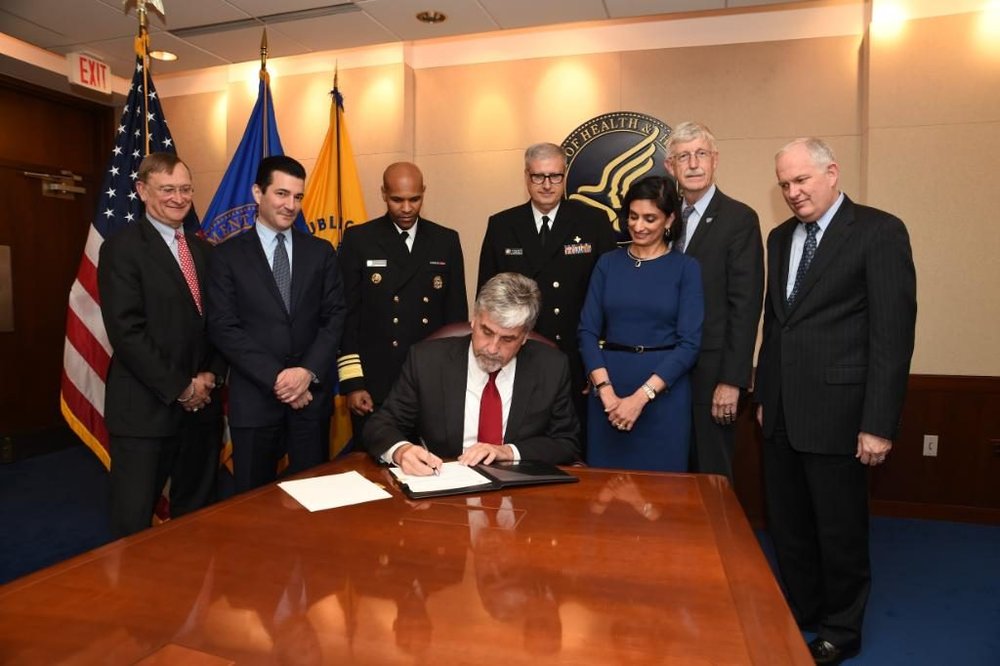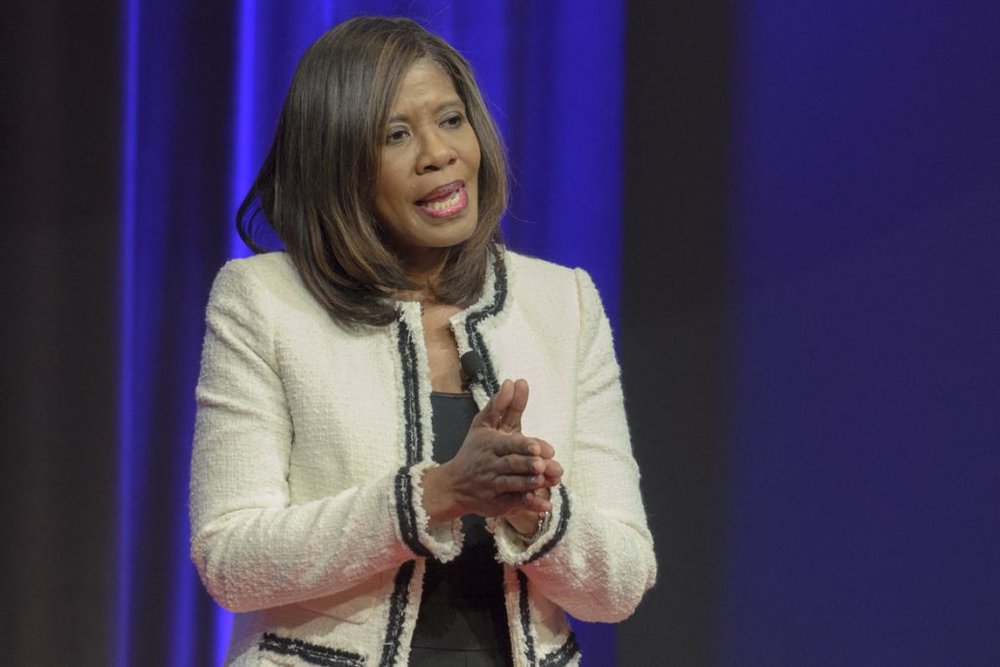Trump Declares A “Health Emergency” Addressing Opioid Crisis


We all know that drug cartels and illegal operations are rampant in the underground. It’s one of the global problems most countries around the world are dealing with on a daily basis. The problem with drugs is that they come in all forms and that’s why even the first world countries remain vulnerable. One of the most controversial crackdowns against drugs we’ve heard recently was the Philippine President Duterte’s “War on Drugs” against the synthetic drug methamphetamine. And now, it seems President Donald Trump is also stepping up his game against illegal, synthetic drugs plaguing the beloved country. Last Thursday, President Trump directed the Department of Health and Human Services to declare an opioid crisis and categorize it as a health emergency.
One of President Trump’s platforms during his campaign was to address the scourge rate of drug addiction plaguing the United States. Earlier on, President Trump had promised to declare this a “national health emergency” in August 2017, just in time for the bicameral Congress to allocate federal funding to address the issue. However, President Trump fell shortly on his promise and just made his announcement 3 months after.
The reason behind his late announcement was that he waited for the Department of Health’s report stating that this drug crisis claimed more than 59,000 lives in 2016. This prompted the President to declare the health emergency as well as to take actions to expand the medical treatment facilities of public health specialists and hospitals, which he argued that would play a key factor in addressing this epidemic issue.

President Trump declared opioid crisis as a National Health Emergency
“No part of our society — not young or old, rich or poor, urban or rural — has been spared this plague of drug addiction and this horrible, horrible situation that’s taken place with opioids,” Mr. Trump said during an elaborate and emotional ceremony in the East Room of the White House, attended by families affected by opioid abuse, members of Congress and administration officials. “This epidemic is a national health emergency.”

Nancy Reagan led the Just Say No Campaign to battle the destructive effects of drugs on teens
In order to battle the crackdown, the President said that the government will really on “toughen up” in capturing and putting the addicted American users in jail for using the said drug. He also urged the Americans to drop their use of opioids and remember the “Just Say No” anti-drug campaign, lead by Nancy Reagan during the 1980s.
“This was an idea that I had, where if we can teach young people not to take drugs,” Mr. Trump said, “it’s really, really easy not to take them.” He shared the story of his brother Fred, who he said had struggled with alcohol addiction throughout his life and implored Mr. Trump never to take a drink — advice the president said he had heeded.
“We are going to overcome addiction in America,” the president said.
Following the directives of the President’s orders, Acting Health Secretary Eric D. Hargan said they would allocate some grant money to combat opioid abuse. They will also start hiring a batch of a specialist in order to tackle the crisis and lead the rehabilitation treatment of those American patients who will surrender and volunteer for a remission. Aside from that, he also urged the expansion of telemedicine services to treat the patients in rural areas, where the presence of medical doctors is scarce.

Acting Health Secretary Eric D.Hargan passed decree order to fund and address the opioid crisis
The President also passed a directive addressing that he would include the federally employed prescribers to undergo training and safe practices for opioid prescriptions. He also urged the Drug Enforcement Administration (DEA) to start developing non-addictive painkillers. Moreover, the law enforcement agencies and even the FBI were to intensify their efforts in blocking shipments of fentanyl, a cheap yet extremely potent drug opioid manufactured from China.
In an effort to intensify the crackdown, the President also said he’s willing to suspend the rule that currently prevents the Medicaid from funding rehabilitation services all around the country.
“We cannot allow this to continue,” Mr. Trump said. “It is time to liberate our communities from this scourge of drug addiction.”

AMA Chairwoman on opioid task force said the President’s move will help raise awareness to battle opioid addiction
The chairwoman of American Medical Association’s opioid task force, Patrice A. Harris, lauded the President and said that his move “will offer needed flexibility and help direct attention to opioid-ravaged communities.”
“There is plenty of work ahead,” Dr. Harris added, “and the emergency declaration adds further urgency to this epidemic.”
Source: Read Full Article